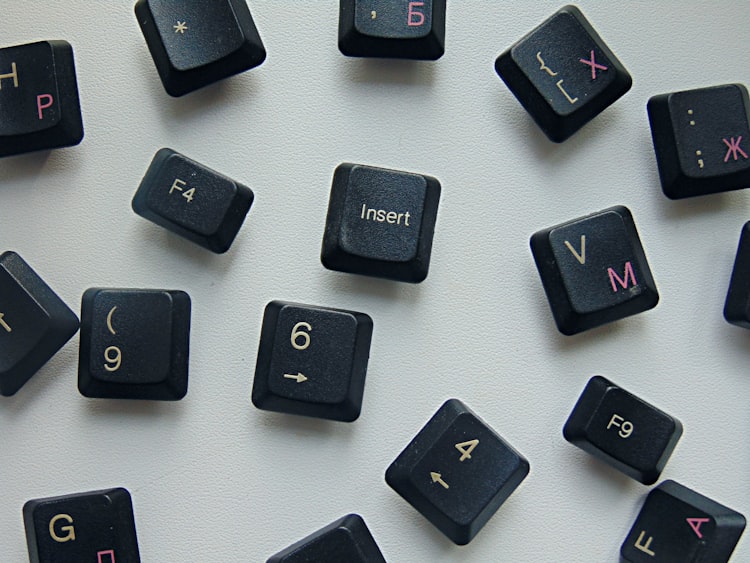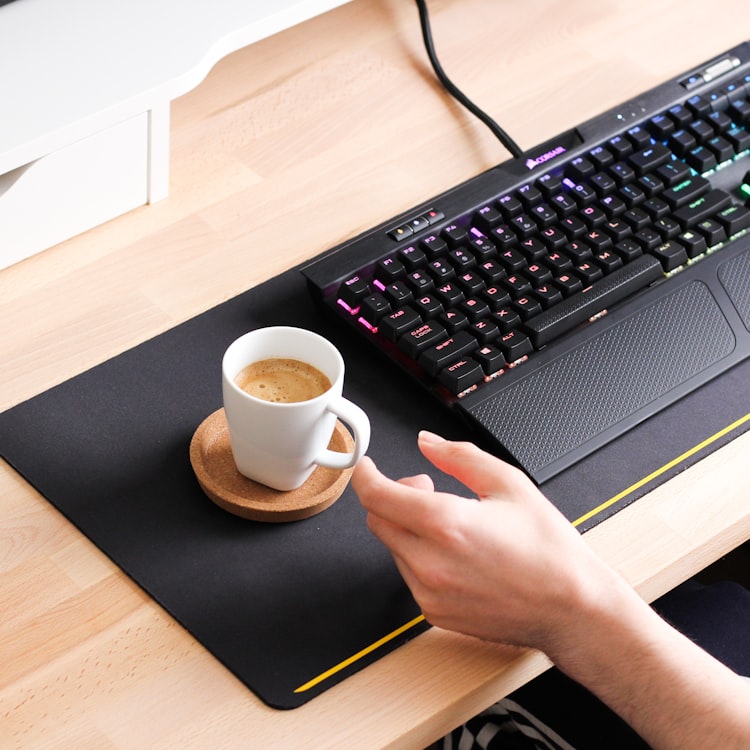Keyboard Layout Progress Report
A reader kindly asked me to give an update on my keyboard experiences and particularly my experiences relating to my recent shift back to trying Dvorak after giving Workman a try.
The big reveal? I'm back to QWERTY. Yes, I know, this revelation probably isn't very exciting to those of you who feel that a better keyboard layout is just a few mouse clicks away.
Let me first say that I didn't have any of the complaints that I had against Workman or Colemak with Classic Dvorak. In fact, I found the tweaked keyboard layout to be quite nice, and especially how the numbers were laid out. I continue to think that if you are looking for an alternative keyboard layout, and you are particularly concerned with overall typing performance and speed, that Dvorak is probably the only real choice, and Classic Dvorak is certainly worth a look if you are using traditional keyboard key configurations, and not some ultra-uber-ergonomic.
Workman and Colemak both provide excellent ergonomics in one or more dimensions, and may be suitable for you if you are happy with around 100-120WPM and are just looking for something to reduce overall strain on your wrists or hands. Colemak has the benefits of key commonality with QWERTY which makes integration with other applications and keyboard shortcuts nicer. Workman is the more efficient of the two layouts and definitely provides some benefits.
Despite its flaws in overall ergonomics related to UNIX and the command line, the Dvorak layout remains, IMO, an excellent layout for speed of typing combined with efficiency. However, there are some down sides. For one, it really is difficult to make it work with keyboard shortcuts, IMO. You can do it, and if you want to invest enough time to make it work for all of your applications, then you can make it work.
However, for me, while I tend to think of Dvorak as still potentially superior in the abstract, theory, and some specific dimensions, I'm not convinced that it's that much faster, or that it provides enough of an efficiency benefit in terms of ergonomics to make it worth switching out from QWERTY.
The QWERTY keyboard is a fast layout. Don't let anyone tell you otherwise. While you can argue about various artificial keyboard performance metrics, I'm sitting here typing very fast with it. There are tons of things to hate about it, but I'm just not convinced that on modern keyboards with modern keyboard arrangements that the QWERTY layout is actually a slow keyboard. I think rather that it can be a very fast keyboard, and I think that once you start getting past the 140 mark on your typing, I'm not sure how much of a difference it makes to have Dvorak versus QWERTY.
There is some argument to be made that Dvorak may require less effort in your typing, but again, I'm not sure that you can't get a better result simply by ensuring that you're typing with better keyboards. I feel that the keyboard and the key switch that you use is vastly more important to your overall fatigue in your typing than the specific typing layout. You're likely to have better results in typing fatigue by picking a high quality keyboard with an efficient and intelligent arrangment of the keys rather than using Dvorak on a sub-par keyboard.
Dvorak comes with a host of "integration" issues that I have, especially when I am using a third keyboard overlay to type APL symbols, and the overall world just lives in QWERTY. For my personal work, it's more important that I have the ability to type fast on many computers and that I have something that integrates well with a variety of applications and with my keyboard overlay than to have something that is potentially the absolutely fastest layout for the specific goal of typing English. I do type a lot of English, but I find that breathing, relaxation, and good typing form/mechanics results in better typing than I can get from Dvorak, with significantly less effort.
A big part of this is my transient nature. I'm constantly switching up my environment and changing the way that I work to keep things interesting. I adapt pretty fast to new environments, which is probably one of the reasons that I find it so easy to transition between the various keyboard layouts, but even with that, I don't like that Dvorak makes the switching from one environment to another difficult. What I end up having is an emotional block that makes me wish I were not using Dvorak. That's nothing specifically against the keyboard layout, but something about me and the keyboard layout don't get along very well.
As an example, I like to use many different text editors, among them being:
- Vi
- Emacs
- Wordstar-like jupp/joe
- Code-Browser
- Acme
- Ed
- THE/Xedit/ISPF clones
When using QWERTY, I can seamlessly transition from one of these editors to the other with minimal customization, and moreover, I don't have to remember my customizations from one machine to the next when I work on these editors. If I were using Dvorak, there are conscious things that I would need to change in order to make each of these editors work well with the layout, and I don't want to have to do that when I may only be using that editor for a week or a month at a time.
Basically, QWERTY is the more usable layout because of commonality and ubiquity. While I hate to be a champion of the common and the easily found, that's what has worked with me right now. It's just easier to use QWERTY, and I don't seem to be suffering much in terms of ergonomics and performance. It's a cost benefit analysis that leads me to QWERTY, despite finding a lot to like about Dvorak.

